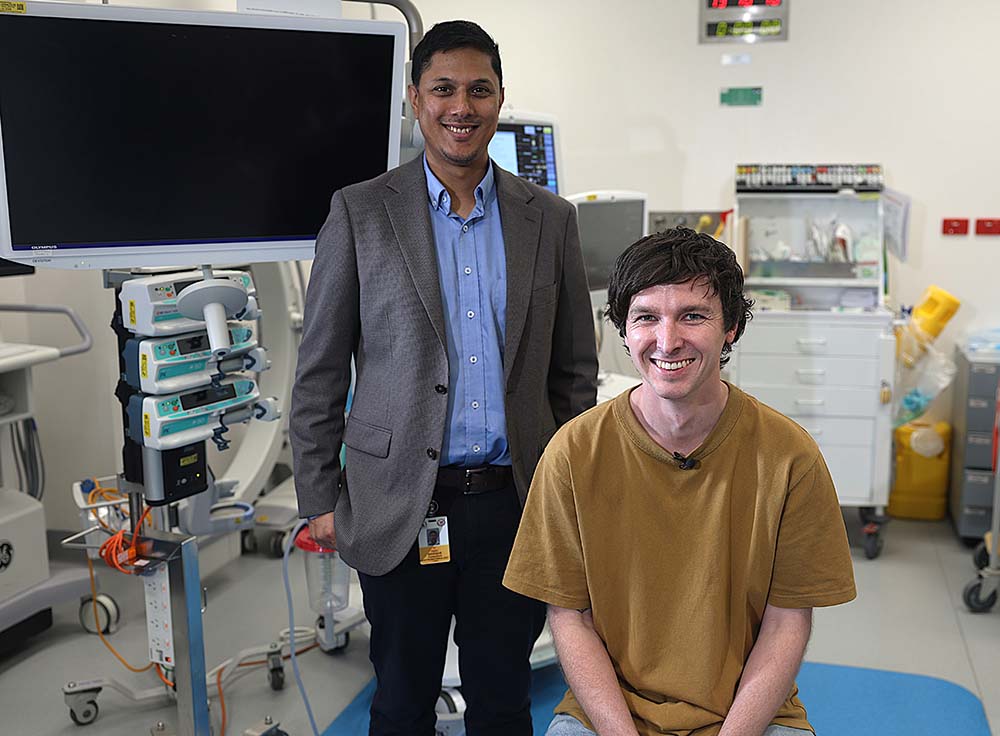Young people encouraged to test for bowel cancer
 Dr Nabil Siddique and patient Sam Mannix
Dr Nabil Siddique and patient Sam Mannix
People born in the 90s are three times more likely to get bowel cancer than their parents.
In 2025, colorectal cancer has become the deadliest cancer for Australians aged 25 to 44 years. Early-onset colorectal cancer is defined as a diagnosis before age 50.
Sadly, Australia now has the world’s highest rates among in the under-50s, rising by up to 8% annually.
Sam Mannix a healthy, beach loving active person in his 30s was shocked when he went to the doctor with abdominal pain and was diagnosed with stage 3 bowel cancer.
Sam said it was very scary, especially being a young person but an early diagnosis potentially saved his life.
"People that are showing any signs should not to be scared of going to their GP,” he said.
“GP's see that stuff every day, that's what they're there for, to help out, so go get checked out."
Symptoms to watch out for include diarrhoea or constipation, blood in the stool, abdominal pain, bloating or cramping, unusual weight loss and unexplained fatigue.
Sir Charles Gairdner Hospital’s Gastroenterologist Consultant Dr Nabil Saddique said the rise is thought to stem from factors such as obesity, lifestyle, poor diet, microbiome disruptions, antibiotic exposure, and emerging environmental threats like microplastics.
"We as medical professionals see these problems all the time and there's no stigma here, there's nothing to be embarrassed about and potentially getting those symptoms addressed could save your life," he said.
Public health strategies now emphasise earlier symptom recognition in younger adults, primary care awareness, expanded screening access, and urgent research into drivers behind this alarming trend.
In response to these trends, the National Bowel Cancer Screening Program has lowered its entry age from 50 to 45 years in 2024 via an opt-in system.

